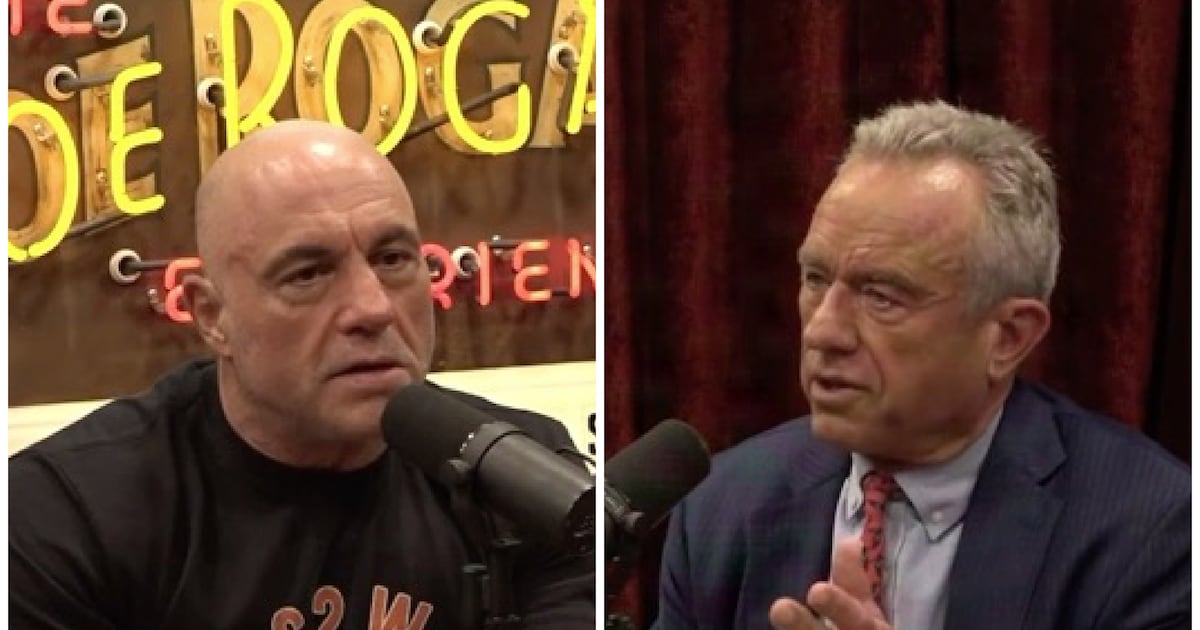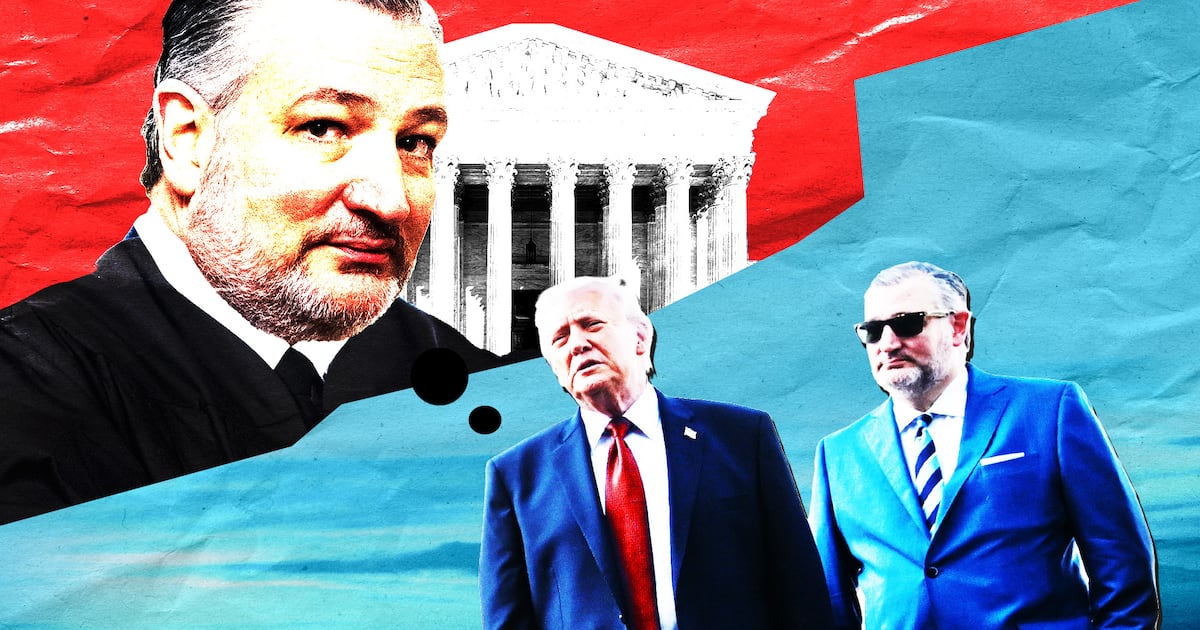It turns out the omniscient anchorman was always a lie, even before the most popular and trusted newsman in America got caught parading one around at an intermission of a hockey game, saying his helicopter was shot at when it wasn’t. Brian Williams will spend the next six months without pay decidedly not reading the news on NBC, and it’s a wonder if he’ll ever be back.
The real wonder, of course, is why the Nightly News as an idea—a costume party for bravado and the status quo—is still around at all, and why it’s still mild heresy to say people like Jon Stewart replaced it a long time ago.
Admitting that the way we were getting news was desperately flawed—at least until a few years ago—is really admitting to a larger failure in ourselves. So, of course, we will never do it.
We now simply have better ways of getting information, although nobody wants to admit that—because watching the news for a half-hour every night and receiving all of it was as convenient of an idea as it was a naïve one.
Instead, we have couched very real advancements in the idea that sincerity, storytelling and vulnerability are simply functions of comedy. We have said that The Daily Show or The Colbert Report or even The Onion—a publication with arguably more cultural expectation 24 hours after a big event than the New York Times editorial board—are all fronted by comedians who have been able to co-opt the news for better, timelier punchlines.
The reality is the opposite: The protections that we now know need to be provided to TV journalists—the expectation that they could be human, that they could quickly admit to mistakes without being permanently reviled, that they could unveil their process while reporting on what they know and don’t know—are really only provided to comedians.
Comedy and news collided not because comedy needed the news, but because news needed the protections of comedy.
Here’s how we know it: The most prominent cases of clear government corruption that were brought to light—and eventually killed—by a TV show in the last year did not come from the Nightly News, a tepid-by-design, rote reconstruction of the day’s events told slowly and dispassionately, as not to ruffle the feathers of the powerful.
Those scoops—acts of journalism in the truest sense—happened, instead, on places like Last Week Tonight, hosted by Daily Show alumnus John Oliver.
His show, for example, highlighted an FCC Commissioner—one whose last job was the head of the telecom lobby—proposing rules that would have allowed that same cable lobby to rake consumers over the coals by artificially slowing down the speed of some websites while simultaneously raising prices. His show launched a protest that was so swift and immediate it crashed the FCC’s servers. That commissioner, Tom Wheeler, did a 180—and last week proposed different rules that would protect the Internet against that kind of throttling.
Then it happened again with payday loans, which prey only on the poor. (The Consumer Protection Agency, as of three days ago, is trying to put an end to them.)
And then again with civil forfeiture—a process that allowed police to seize assets from citizens who were never arrested or charged with a crime. (Attorney General Eric Holder laid out an edict effectively putting an end to it.)
These issues were on the fringe of public consciousness. Fifteen minutes, a lot of reporting and a little bit of comedy later, three pieces of legislation that would’ve negatively affected less fortunate Americans—or, in the first case, all Americans—were about to be killed.
The Nightly News couldn’t dream of doing this that efficiently.
After a couple of decades of the Internet and 16 years of The Daily Show, the era of the fake officialness of the modern American anchorman is now gone. We now know there was no greater past when Walter Cronkite and Edward R. Murrow squared up and fought mano a mano for The Truth like they were settling a bet outside of a saloon.
The truth—outside of strictly binary ideas like life or death—is subjective. It was no less subjective when news was limited to one newspaper and one national newscast per day, which were prone to giving the “other side” of issues like firehosing black people and the systemic prohibition of rights for gays and lesbians.
But there was no “other side.” It was a quiet repression all along that would’ve gone unchecked without the evolution of news into criticism and comedy.
So of course Brian Williams is going down. The idea that we still expected anything out of that job is the most surprising event from last week.
“People are now starting to get connected because video and information isn’t a completely linear function anymore where a consumer is on the receiving end. Already, we can share it. By becoming engaged in communities around shared interests, we’ll eventually be able to become even more connected to that,” said Jordan Levin.
That’s the sort of thing that’s leading to better news: People who can fact check the guy on the air.
There are, of course, inherent dangers in this. Levin used to run Xbox Entertainment and signed off on a documentary about it with a bunch of Microsoft’s money before they stopped making things like that. It was about Reddit’s reaction to the Boston Bombing and the hysteria that followed it, and the guided voices necessary to provide insight and reason in a time of crisis.
“What gets lost is a proverbial sense of communal experience. We’re not all getting it through Walter Cronkite. We’re not all going to experience him choke back a tear,” he told The Daily Beast. “The danger is that we become isolated in our own echo chambers—that we don’t get different points of view that open us up to thinking about other people. That’s the dystopian view. That’s the fear—that everyone’s essentially in their own bubble.”
It’s an important point, but remember: Brian Williams was our trusted source because someone else whom we’ll never know or talk to told us he should be, so he was. In fact, in October, NBC ran an ad campaign, reminding us how lucky we all are to be able to experience Williams’ 10th year in the Nightly News anchor chair.
It’s four months later, and it looks like that was never true at all.
We didn’t inherit Jon Stewart, or John Oliver, or The Onion. We needed them, so we took them instead.





